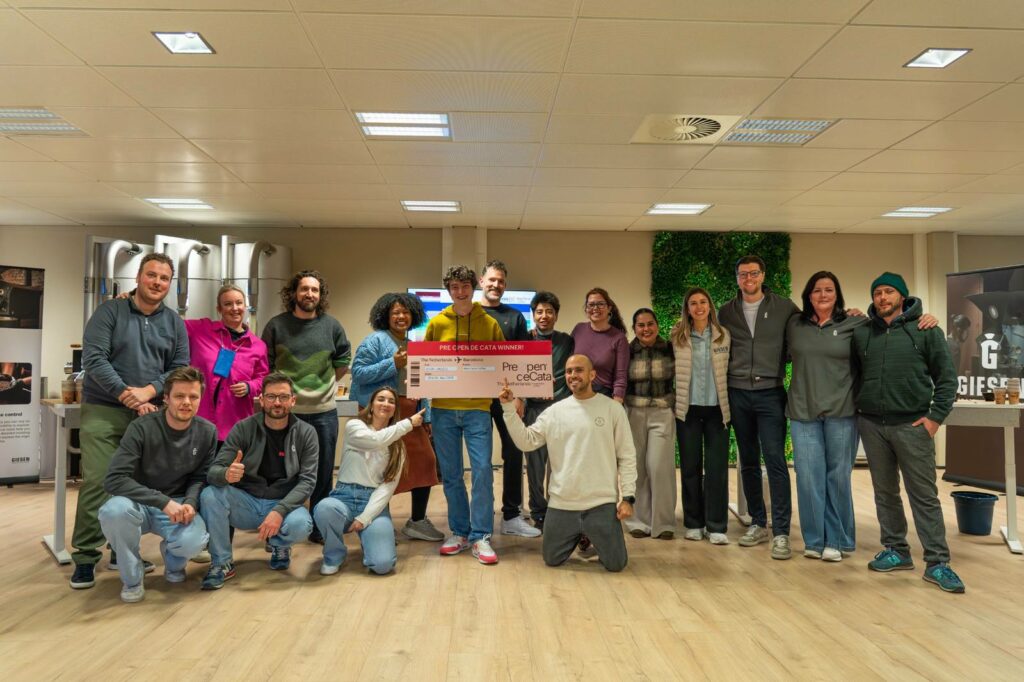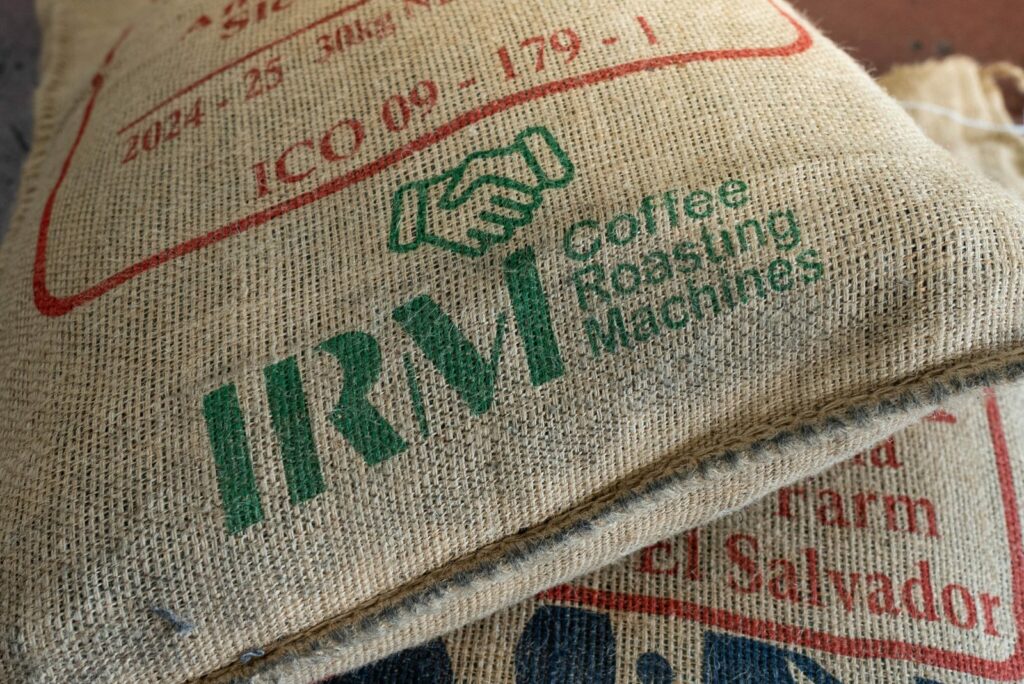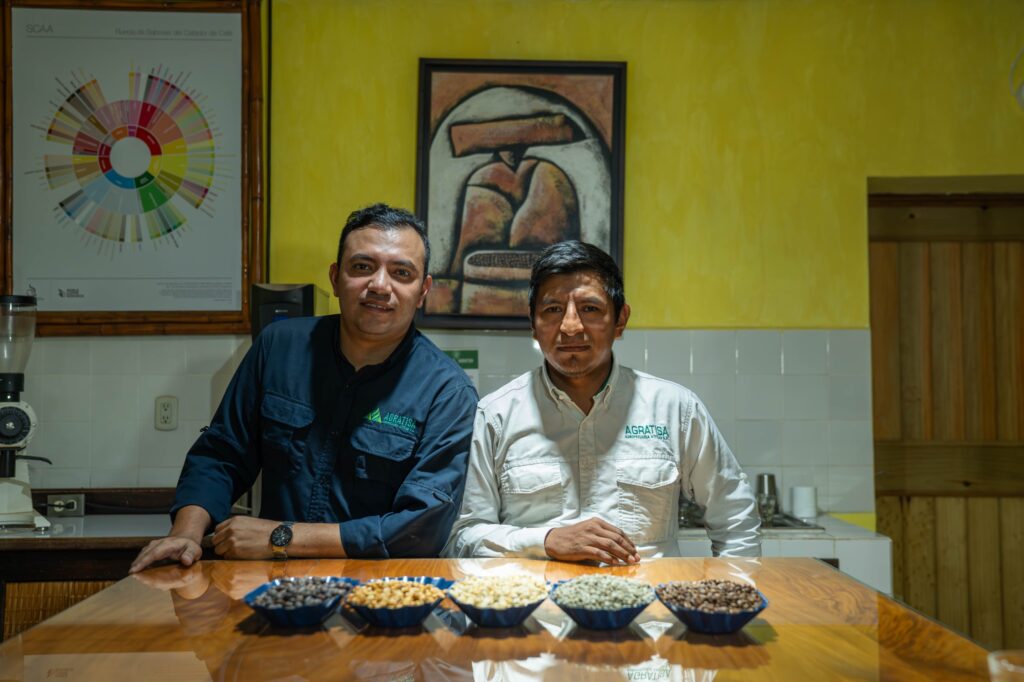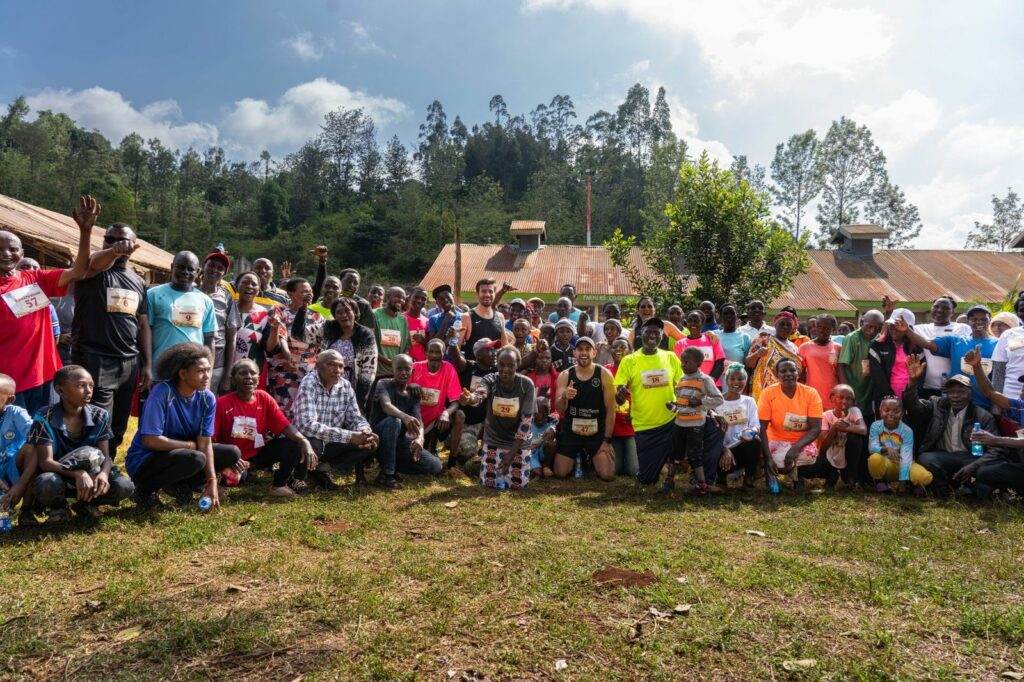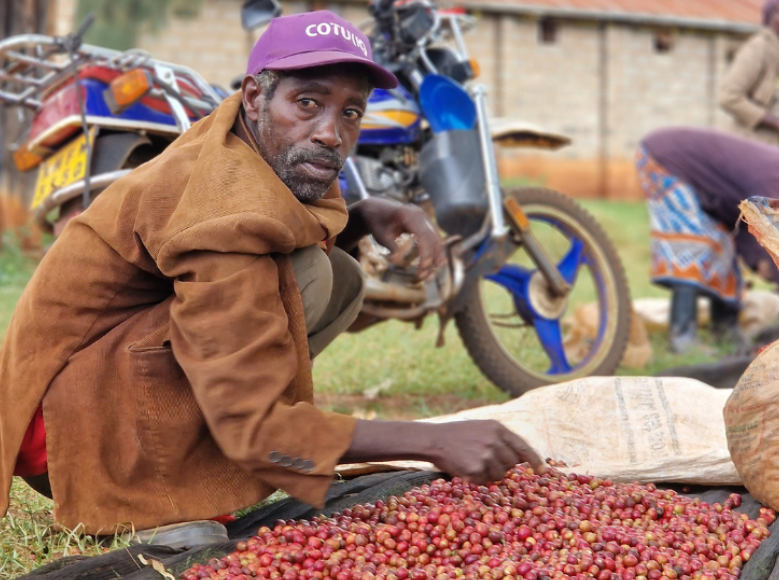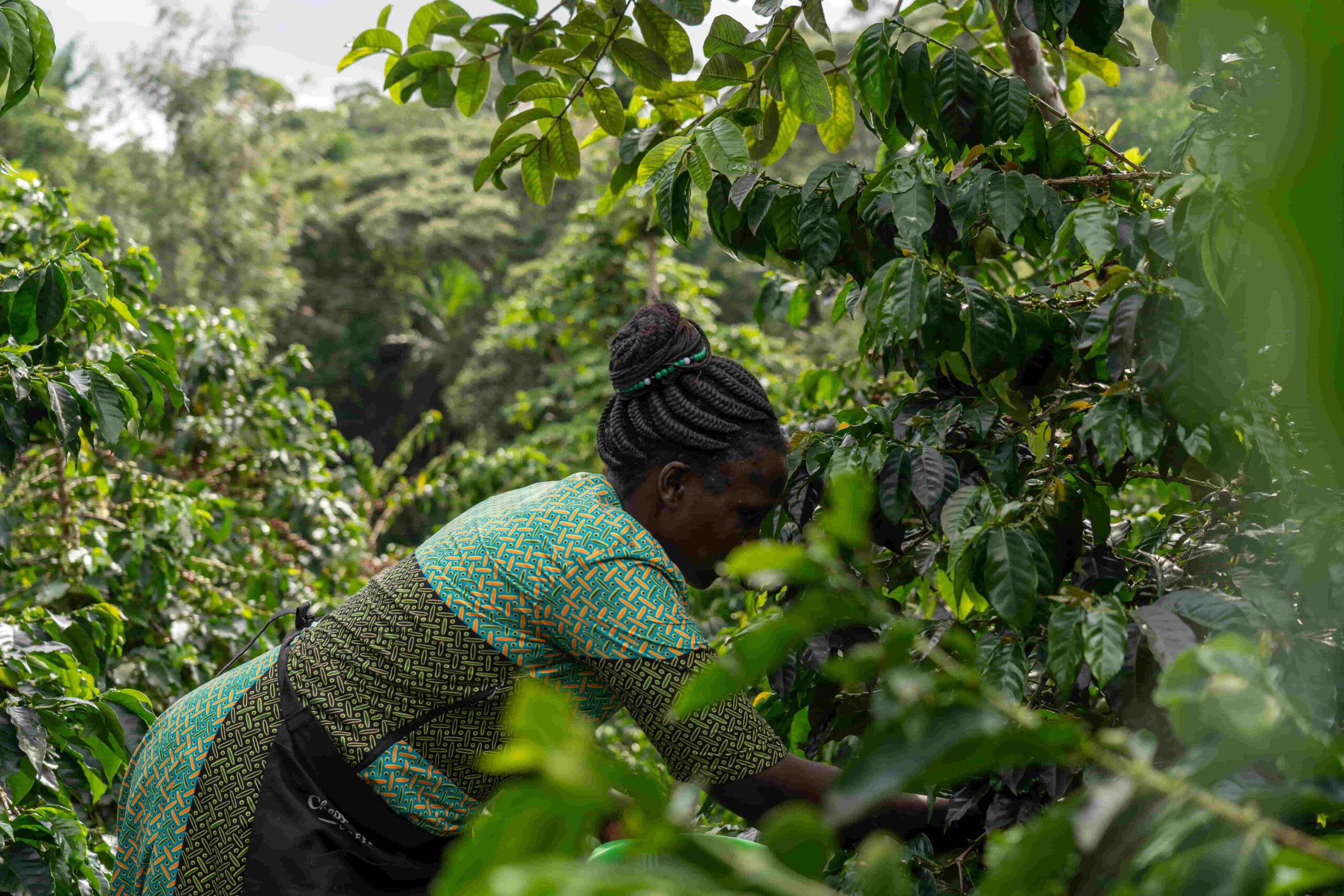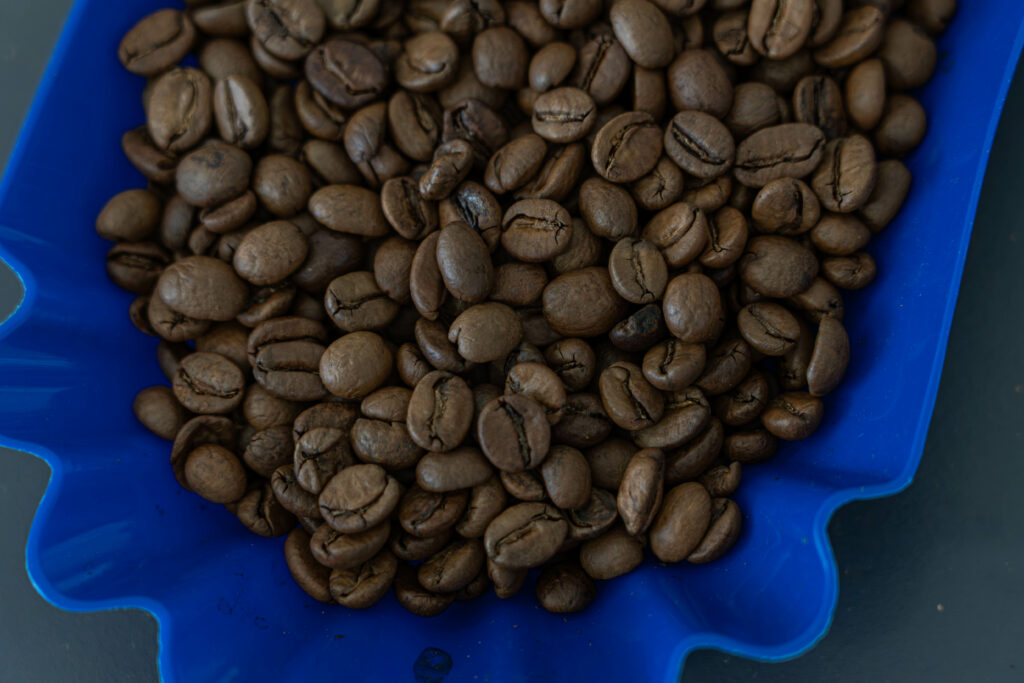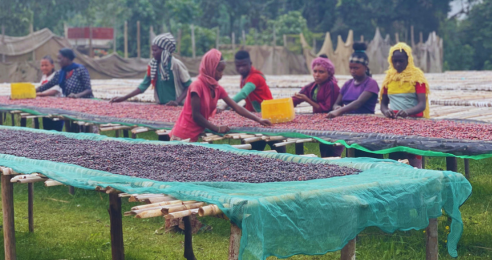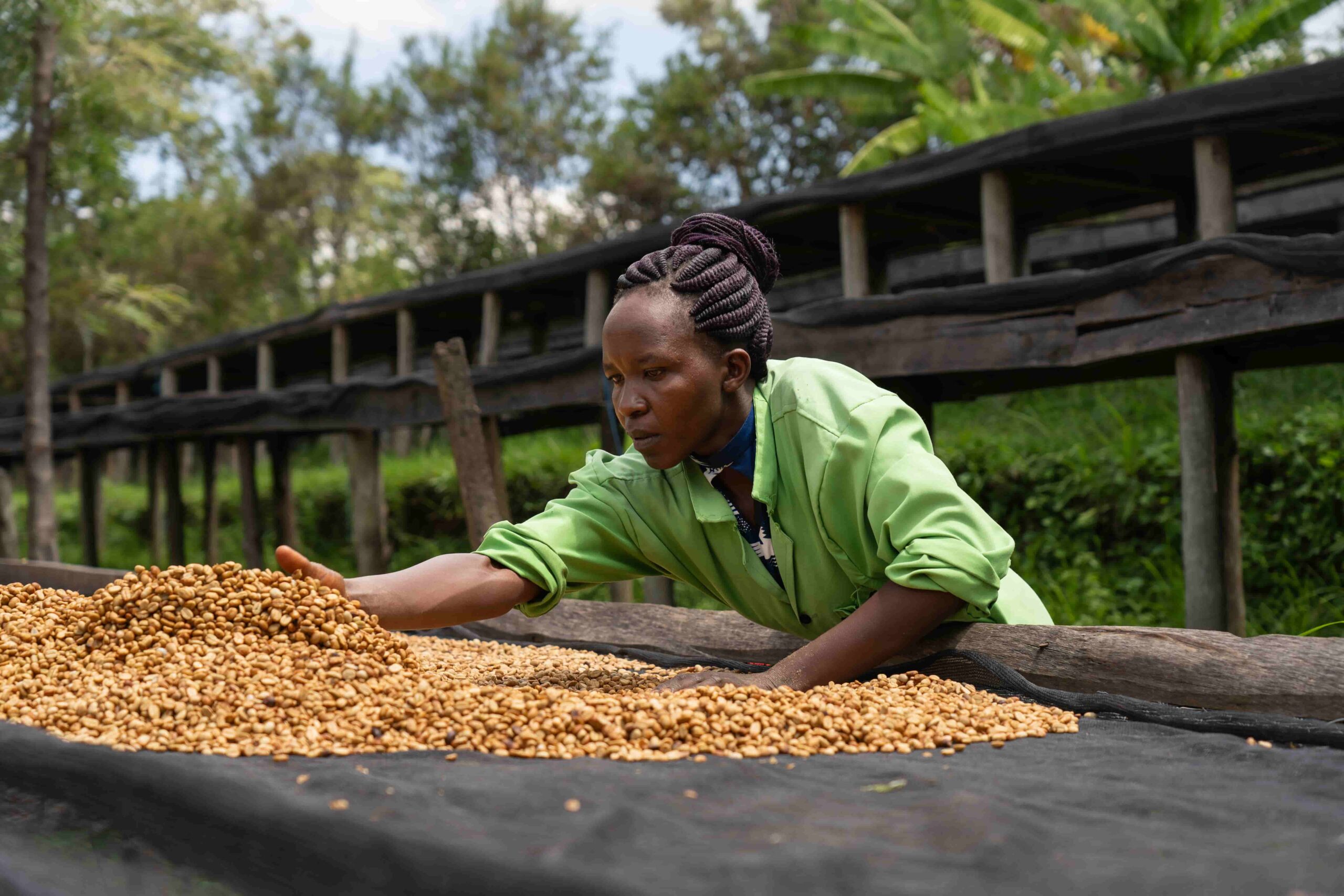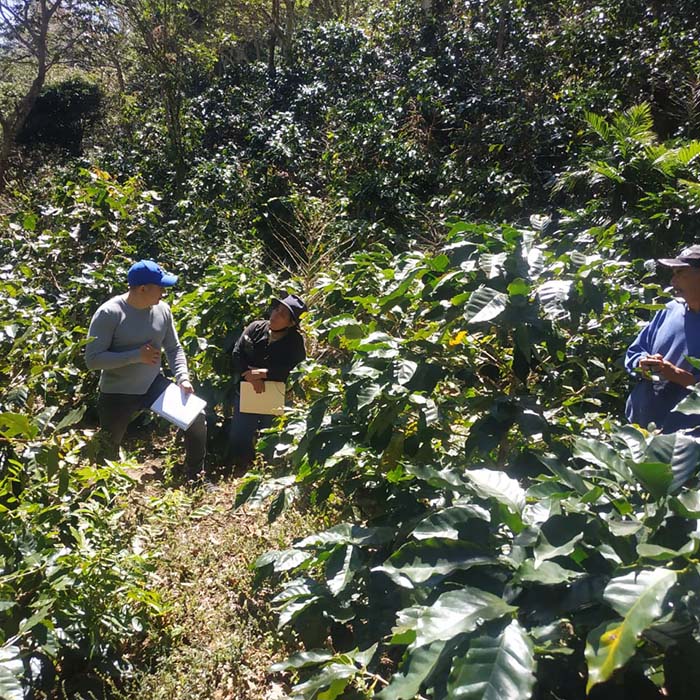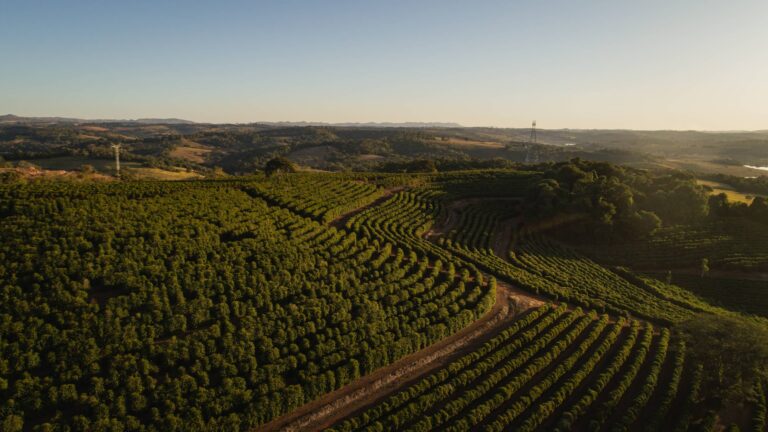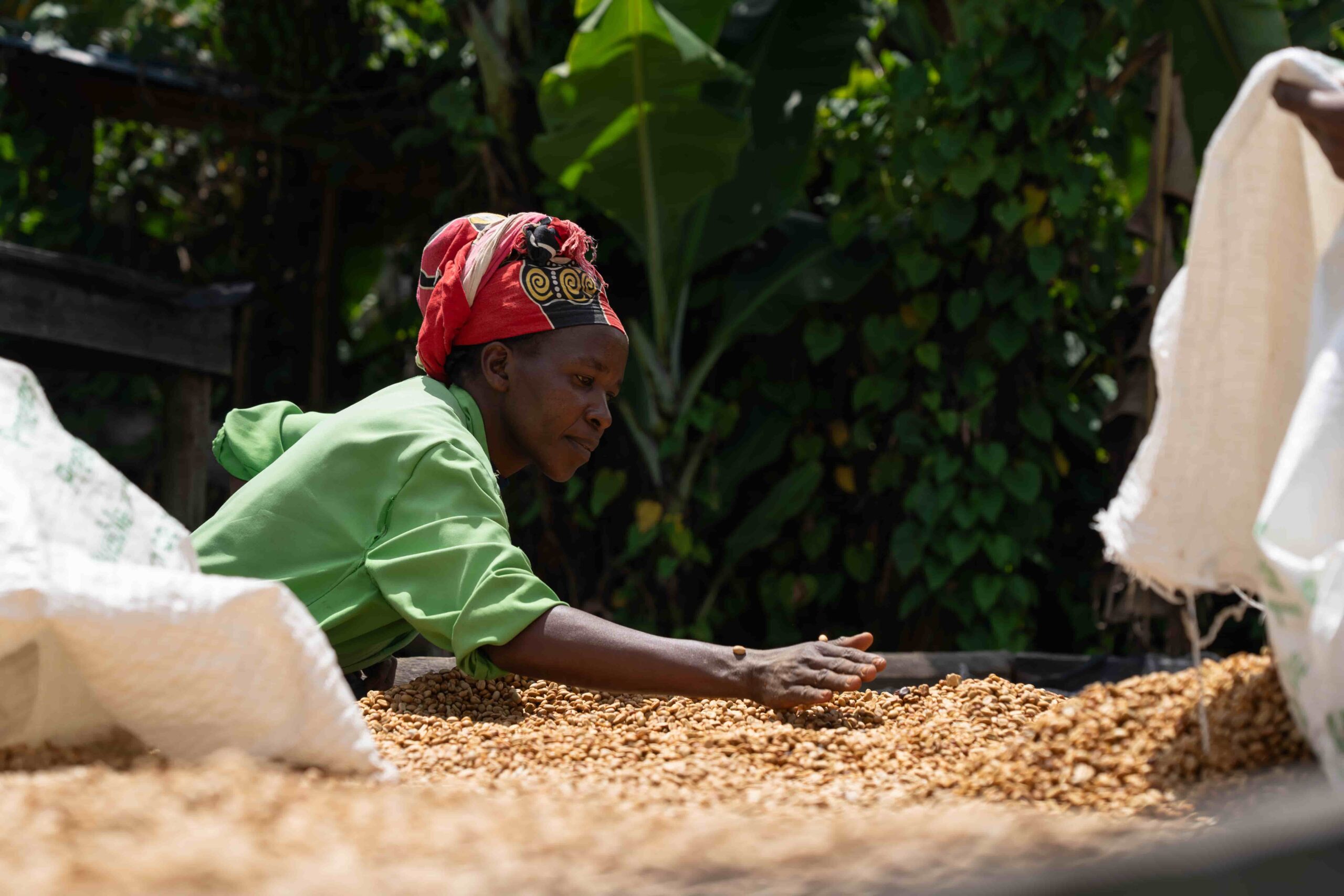Rwanda 2023 – Our origin trip
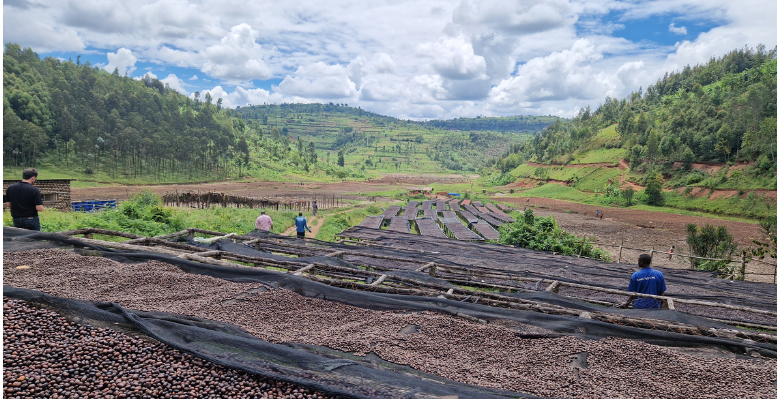
In 2019, we began our collaboration with Emmanuel and the Baho Coffee team in Rwanda. But between unforeseen circumstances and the pandemic, it wasn’t until this April that we were finally able to set foot in the land of a thousand hills.
Rwanda is a small, landlocked country in East Africa. And while today it’s closely associated with quality and specialty coffee, its relationship with coffee is shaped by a complex history spanning more than a century—something you can’t ignore when you’re there. After arriving in Kigali, we dedicated our first day to understanding that past and paying our respects: to what was lived… and to the future the Rwandan people are building.
So what does Rwanda’s future look like, and what does it have to do with coffee? A great deal. Much of it is driven by the Rwandan Government and its National Coffee Strategy, the relentless work of more than 400,000 smallholder producers, and the support of an international coffee community that invests at origin through long-term partnerships. That’s exactly where our trip fits in: as an R&D team, we returned to keep developing lots, processing practices, and quality standards together with our partners.
Day 2: to Gatsibo and the Humure Washing Station (Remera)
Day two is when the journey truly began—up, down, and around hill after hill. We left Kigali and headed northeast to Gatsibo District (Eastern Province), near the border with Tanzania and Uganda. There we visited the Humure Washing Station, in the Remera sector.
Humure is one of Baho’s largest stations. It processes around 2,500 metric tons of cherry each harvest and has capacity for washed, honey, and natural processing. This is where one of our constellations is produced: Fulu ANS (traditional honey), led by Straton Nzarambi and his team.
After a detailed technical tour guided by Humure’s agronomist, Charles Mvuyekure, we continued on to another nearby station.
Gitoki: training, processing, and shared goals
In the neighboring sector, we visited the Gitoki Washing Station. Although it doesn’t currently process any of our lots, it was still an important stop for one key reason: we hosted a processing training session with station managers from across the country.
For us, these sessions are essential. As a specialty green coffee company, we believe in something simple: quality isn’t bought—it’s built. And it’s built through shared knowledge, clear goals, and genuine collaboration that strengthens traceability, consistency, and the identity of each lot.
Day 3: Nyaruguru and the Fugi Washing Station (Ngoma)
On day three, we traveled south to Rwanda’s Southern Province—Nyaruguru District, Ngoma Sector—to visit the Fugi Washing Station. This is where our Segin VVB (anaerobic natural) is processed under the leadership of Ahprodice Munyangaju.
Fugi receives around 600 metric tons of cherry from 1,189 local smallholders and is equipped for all processing methods, with a strong emphasis on cherry selection and sorting. It’s an excellent example of a well-run, fully equipped station backed by a highly skilled team—which is why it’s often used as a hub for farmer training and education programs, as well as for the wider coffee community supporting the district.
Community, health, and coffee: our project with Dr. Naasson
After Fugi, we held a community session with Dr. Naasson Nduwamungu and more than 150 farmers who contribute cherry to the station. Dr. Naasson, the Community Extension Coordinator, has been working alongside MTC and Baho on our breast cancer prevention project—helping ensure the wider coffee community has access to information and resources that reduce the risks of late-stage cancer diagnoses.
For us, specialty coffee isn’t only about cup profile. It’s also about impact, people, and responsibility at origin.
Long rains, challenging terrain, and real logistics
Our visit coincided with the peak of the long rainy season (March to May). These extended rains replenish soil and groundwater reserves, but they can also cause flooding and landslides, affecting roads, access routes, and the day-to-day logistics of coffee.
In Rwanda, you feel that reality firsthand.
Day 4: Nyungwe, Lake Kivu, and the Ngoma station (Nyamasheke)
From the south we headed west, crossing Nyungwe Forest National Park to reach the shores of Lake Kivu, where the Ngoma Washing Station is located (Nyamasheke District), home to our Terra Ingoma lot.
It wasn’t the easiest route—rain, mud, limited access. But we made it, and it was well worth it. Jean Claude, the station manager, welcomed us and walked us through the station and its facilities.
For our R&D team, these visits are invaluable. They allow us to track progress, understand real capacity, identify opportunities for improvement, and plan the next steps for the green coffee lots we select each season. They’re also moments to connect and share—including something especially meaningful: bringing back coffee roasted in Europe to share with the team, returning part of the journey in the form of a cup.
When nature decides: Bugoyi and an alternative route
Our original plan included visiting Bugoyi (Rutsiro District), where one of our standout constellation lots—Navi AMAR—is processed. But heavy rains had completely washed out the road and a key bridge, making access unsafe and impossible.
Still, we were able to visit a new station for us: Muzu, in Gakenke District.
Final day: calibration in Kigali with Baho’s Q Lab
We wrapped up the trip back in Kigali with a full day of calibration and quality control alongside Gentille Ishimwe, director of Baho’s Q Lab.
We cupped different processes and terroirs from Rwanda, and we also tasted samples planned for Rwanda this year alongside coffees from our partners in Colombia, El Salvador, Ethiopia, and Kenya. It’s a great exercise for identifying how the same “recipe” expresses itself across different origins and varieties—spotting both shared markers and the clear differences that make each coffee unique.
Since harvesting is still ongoing in parts of Rwanda, we’re still waiting on many samples from this year’s lots. But we’ll keep you updated on progress, results, and all the work we continue doing at origin—because that’s where what later reaches your roastery begins: traceability, transparency, and specialty green coffee with identity.
